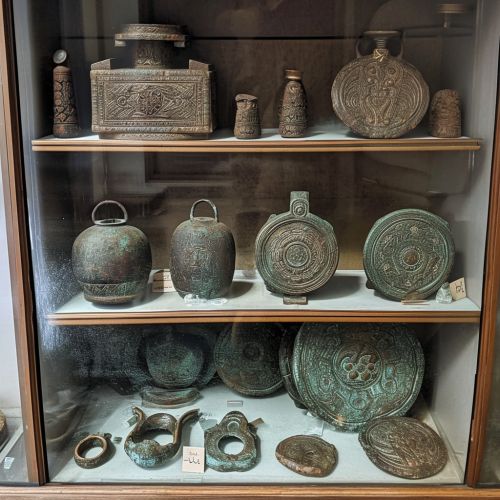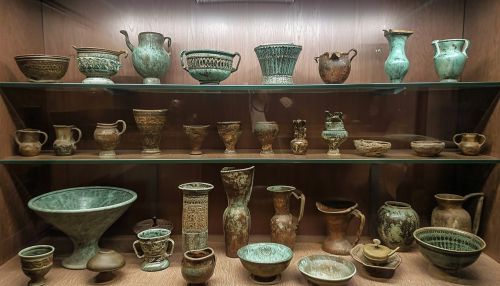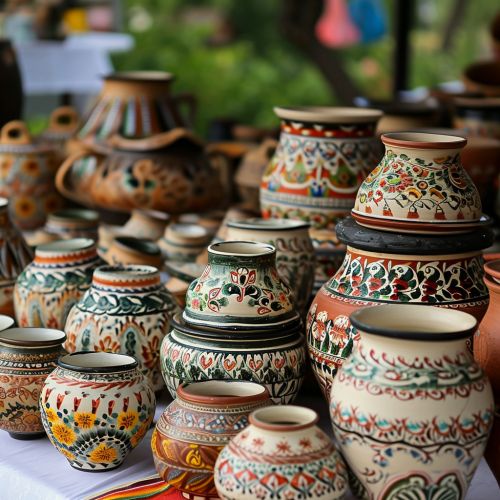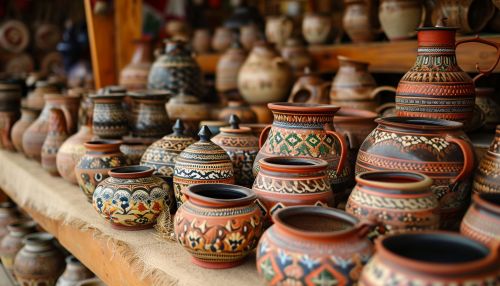Culture of Bulgaria
History
The Bulgarian culture has a rich and diverse history, dating back to the prehistoric times. The earliest known cultures in Bulgaria are the Karanovo, Vinča, and the eneolithic Varna cultures. The Thracians, one of the three primary ancestral groups of modern Bulgarians, appeared on the Balkan Peninsula some time before the 12th century BC. Thracian artifacts and ruins are found throughout the country.


The Thracians were eventually absorbed by the Romans in 46 AD, and Bulgaria became a part of the Roman Empire. The Roman period in Bulgaria was a time of cultural assimilation and expansion, with the construction of public buildings, roads, and fortifications.
In the 7th century, the Bulgar tribes migrated to the region and established the First Bulgarian Empire. The Bulgars were a semi-nomadic warrior culture, and their influence is still felt in Bulgarian culture today.
Language
The Bulgarian language is a South Slavic language, and it is the official language of Bulgaria. It is also one of the official languages of the European Union. Bulgarian has a rich literary tradition, with the earliest works being the Old Bulgarian (also known as Old Church Slavonic) religious texts from the 9th century.
The Bulgarian language is unique among Slavic languages in its use of the definite article, which is appended to the end of the noun. It also retains a number of grammatical cases, although not as many as other Slavic languages.
Literature
Bulgarian literature is a significant part of the country's cultural heritage. The development of Bulgarian literature can be traced back to the Middle Ages and the creation of the Cyrillic script. The most famous medieval Bulgarian literary work is probably the "Manasses Chronicle", a historical poem written in the late 10th century.
Modern Bulgarian literature began to develop in the 18th century, with the works of Paisius of Hilendar and his "Istoriya Slavyanobolgarskaya". The 19th and 20th centuries saw the emergence of many notable Bulgarian authors, such as Ivan Vazov, Aleko Konstantinov, and Elias Canetti, who won the Nobel Prize in Literature in 1981.
Arts
Bulgarian culture is rich in visual arts, music, and dance. Traditional Bulgarian art is characterized by Orthodox Christian iconography and vibrant folk art. Bulgarian folk art includes pottery, weaving, woodcarving, and metalworking.


Bulgarian music is diverse and has a long history. It includes traditional folk music, classical music, and popular music. Bulgarian folk music is particularly known for its distinctive vocal style and complex rhythms. The country has a strong choral tradition, with many professional and amateur choirs.
Bulgarian dance, or "horo", is a traditional form of group dance. It is performed in a circle, with dancers holding each other's hands or belts. There are many different types of horo, each with its own steps and rhythm.
Cuisine
Bulgarian cuisine is diverse and heavily influenced by its geography and history. It shares many dishes with the Middle Eastern, Mediterranean, and other Balkan cuisines. Bulgarian food is characterized by the extensive use of fresh vegetables, meat (especially pork), dairy products, and a variety of spices.
Some of the most popular Bulgarian dishes include shopska salad, banitsa, kavarma, and yoghurt. Bulgaria is also known for its beverages, such as rakia (a fruit brandy), boza (a fermented grain drink), and Bulgarian wine.
Religion
The majority of Bulgarians are adherents of the Bulgarian Orthodox Church, an autocephalous Eastern Orthodox Church. The Bulgarian Orthodox Church played a crucial role in preserving Bulgarian culture during the Ottoman rule, and it remains a significant cultural institution today.
There are also other religious communities in Bulgaria, including Muslims, Roman Catholics, Protestants, and Jews. The Bulgarian constitution guarantees freedom of religion, and the country is known for its religious tolerance.
